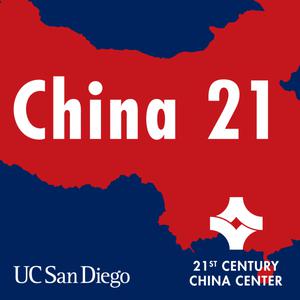
China 21
UC San Diego School of Global Policy & Strategy (GPS)
China 21 is produced by the 21st Century China Center at UC San Diego’s School of Global Policy and Strategy. We are a leading university-based think tank that produces scholarly research and informs policy discussions on China and U.S.-China relations. This podcast features expert voices, insights and stories about China’s economy, politics, society, and the implications for international affairs. Learn more at china.ucsd.edu
- 32 minutes 15 secondsThe Micro-Foundations of CapitalismIn this episode, UC San Diego Professor Barry Naughton talks globalization and economic development in China, Russia and India with Temple Professor Roselyn Hsueh.1 June 2022, 7:00 am
- 32 minutes 10 secondsRetrofitting Lenism - Dimitar Gueorguiev and Harris Doshay21CCC Assistant Director Harris Doshay sits down with Syracuse Associate Professor and UCSD Alum Dimitar Gueorguiev to discuss his latest book, Retrofitting Leninism. In it, they explore the logic of popular participation in authoritarian regimes and the ongoing struggles faced by the CCP.3 May 2022, 7:00 pm
- 33 minutes 41 secondsThe DOJ's China Initiative: Where it went wrong, and why - Susan Shirk and Carol LamSusan Shirk, Chair of the 21st Century China Center, and former U.S. Attorney Carol Lam sit down to discuss the ways the China Initiative, from flaws in its inception to views towards the future of DOJ espionage prosecutions.22 March 2022, 7:00 am
- 31 minutes 36 secondsXinjiang from Qing to Xi - James Millward & Micah Muscolino
Micah Muscolino interviews James Millward, a leading scholar on China and Central Asia at Georgetown University. They connect the history of Xinjiang in the Qing Empire, to assimilationist policies and terrorism of the 2000s, and to present day large-scale repression and cultural genocide of Uighurs under Xi Jinping.
This episode is adapted from the China Throughlines web series, which features UC San Diego’s China historians in conversation with their colleagues on the echos and connectedness of China’s storied past to the twenty-first century.
James A. Millward is Professor of Inter-societal History at the Walsh School of Foreign Service, Georgetown University, teaching Chinese, Central Asian and world history. He also teaches as invited professor in the Máster Oficial en Estudios de Asia Oriental at the University of Granada, Spain. His specialties include Qing empire; the silk road; Eurasian lutes and music in history; and historical and contemporary Xinjiang. He follows and comments on current issues regarding the Uyghurs and PRC ethnicity policy. His publications include The Silk Road: A Very Short Introduction (2013), Eurasian Crossroads: a History of Xinjiang (2007), New Qing Imperial History: the Making of Inner Asian Empire at Qing Chengde (2004), and Beyond the Pass: Economy, Ethnicity and Empire in Qing Central Asia (1998).
Micah Muscolino is Professor and Paul G. Pickowicz Endowed Chair in Modern Chinese History at UC San Diego. His research focuses on the environmental history of modern China. His first book, Fishing Wars and Environmental Change in Late Imperial and Modern China (2009), explored the environmental history of China’s most important marine fishery/ His second book The Ecology of War in China: Henan Province, the Yellow River, and Beyond, 1938-1950 (2015) engaged with the historiography of war and militarization in modern China and the interdisciplinary scholarship on war and the environment in world history. He received his B.A. from UC Berkeley (1999) and Ph.D. from Harvard University (2006).
Web series host: Micah Muscolino, UC San Diego
Editor: Samuel Tsoi, UC San Diego
Music: Dave Liang/Shanghai Restoration Project16 September 2020, 11:28 pm - 51 minutes 50 secondsEpidemic Control & Medical Diplomacy - Mary Brazelton & Micah Muscolino
This episode is an extended interview adapted from the China Throughlines web series, which features UC San Diego’s China historians in conversation with their colleagues on the echos and connectedness of China’s storied past to the twenty-first century.
Mary Augusta Brazelton is University Lecturer in Global Studies of Science, Technology and Medicine at the University of Cambridge. Her book, Mass Vaccination: Citizens' Bodies and State Power in Modern China, examines the history of mass immunization in twentieth-century China. She earned her PhD in History from Yale University and have taught at Tufts University.
Micah Muscolino is Professor and Paul G. Pickowicz Endowed Chair in Modern Chinese History at UC San Diego. His research focuses on the environmental history of modern China. His first book, Fishing Wars and Environmental Change in Late Imperial and Modern China, explored the environmental history of China’s most important marine fishery/ His second book The Ecology of War in China: Henan Province, the Yellow River, and Beyond, 1938-1950 engaged with the historiography of war and militarization in modern China and the interdisciplinary scholarship on war and the environment in world history. He received his B.A. from UC Berkeley (1999) and Ph.D. from Harvard University (2006).
Web series host: Micah Muscolino, UC San Diego
Editor: Samuel Tsoi, UC San Diego
Music: Dave Liang/Shanghai Restoration Project1 September 2020, 7:50 pm - 18 minutes 27 secondsRemembering June 4 - Perry Link & Paul PickowiczThe 21st Century China Center is premiering a new web series: "China Throughlines" - featuring UC San Diego’s China historians in conversation with their colleagues on the echos and connectedness of China’s storied past to the twenty-first century. In this audo excerpt from the pilot episode, Paul Pickowicz interviews Perry Link, esteemed cross-disciplinary China scholar and translator of the Tiananmen Papers. The memory of the tragic and pivotal date of June 4th 1989 or simply 六四, is still the subject of intense debate, censorship, and protest - especially in Hong Kong. Web series host: Paul Pickowicz, UC San Diego Editor: Samuel Tsoi, UC San Diego Music: Dave Liang/Shanghai Restoration Project3 June 2020, 11:00 pm
- 58 minutes 33 secondsRural China Copes with Covid-19 - Scott Rozelle
Since the novel coronavirus outbreak in the megacity of Wuhan in December 2019, lockdowns were also implemented across China’s vast countryside, home to more than 700 million people.
Dr. Scott Rozelle, senior fellow at Stanford University FSI and co-director of the Rural Education Action Program, presents his latest study to assess the effects of local and nationwide disease control measures on the economy, social life and health of China’s rural population.
This was recorded from a May 6th webinar, to view the full presentation, visit china.ucsd.edu or via YouTube
Webinar moderator: Victor Shih, UC San Diego
Editor/Host: Samuel Tsoi, UC San Diego
Music: Dave Liang/Shanghai Restoration Project20 May 2020, 12:00 pm - 43 minutes 43 secondsInvesting in US-China Relations - Weijian Shan and James Kralik
As we are living through a historic pandemic and ever more turbulent U.S.-China relations, we revisit a conversation recorded at our last public lecture right before the lockdown. 21st Century China Board Chair James Kralik interviews investor and best-selling author Weijian Shan about his memoir of living through the trauma and turmoil of Mao’s Cultural Revolution to become one of Asia’s most successful financiers, and how to move forward on constructive U.S.-China relations.
Watch Shan’s full presentation for the So Kwan Lok Distinguished Lecture series on china.ucsd.edu
Weijian Shan is chairman and CEO of PAG, a private equity firm. Prior to PAG, he was a partner of TPG and co-managing partner of TPG Asia. He led a number of landmark transactions including the acquisitions of Korea First Bank and China’s Shenzhen Development Bank, both of which made his investors billions of dollars in profits and were made into case studies of Harvard Business School. He holds an M.A. and a Ph.D. from UC Berkeley, and an M.B.A. from the University of San Francisco.
James Kralik is the board chair for the 21st Century China Center. He is Managing Director of Linden Street Capital Ltd. and a Director of Milestone Capital Investment Holdings Ltd. Over the last fifteen years, these investment vehicles have been involved with a number of leading Chinese businesses in the alternative energy, advertising media, and consumer sectors. Based in Shanghai, Kralik began his career at McKinsey & Company and has lived and worked in China for nearly thirty years.
Editor/Host: Samuel Tsoi, UC San Diego
Music: Dave Liang/Shanghai Restoration Project18 May 2020, 7:06 pm - 27 minutes 13 secondsLessons from 1989 - Wang Dan and Victor Shih
Wang Dan 王丹 speaks with Victor Shih on the lessons from the 1989 student democracy movement. They discuss Wang’s journey as a young student leading up to the Tiananmen Square protests and his life since. Wang describes his mission for Dialogue China - and the discussions he’s fostering about prospects of political reform and preparing citizens for potential crisis at the Chinese Communist Party.
In 1987, Wang Dan was admitted into Peking University. In school, Wang hosted the “Democracy Salon” regularly. In 1989, he participated and organised the 1989 democracy movement, and was one of the people who went on to the hunger strike. After the Tiananmen crackdown, Wang becomes the most wanted person by the government and was jailed until he was released in 1998 by the government under international pressure and was exiled to the United States.
Wang was nominated for Nobel Peace Prize for three times and was awarded several other prizes. In 1998, he began to study at Harvard University, and he earned a History PhD in 2008. From 2008 to 2009, Wang was a visiting scholar at the Oxford University. From 2009 to 2017, he was teaching at colleges in Taiwan, including National Tsinghua University. Wang published “Prison Memoir of Wang Dan”, “Fifteen Lessons of the History of the People’s Republic of China”, “June 4th Memo”, and other 20 books ranging from politics, history, to literature. He was awarded the World Chinese Literature Award. He delivered a public lecture at UC San Diego in 2019 on the Past and Future of Political Reform in China.
Victor Shih is the Ho Miu Lam Chair in China and Pacific Relations and associate professor of political economy at UC San Diego School of Global Policy & Strategy. His latest book is “Factions and Finance in China: Elite Conflict and Inflation”.
Editor/Host: Samuel Tsoi, UC San Diego
Music: Dave Liang/Shanghai Restoration Project5 March 2020, 10:56 pm - 51 minutes 43 secondsInterpreting the Xi Dynasty - Geremie Barmé & Susan Shirk
Geremie Barmé is an esteemed historian, journalist, translator and film-maker. He spoke at UC San Diego in January on resistance movements in two Chinese cities - the case of Tsinghua Prof. Xu Zhangrun’s 許章潤 dissent, and the protests in Hong Kong. Prof. Barmé is the editor of China Heritage, a journal devoted to Chinese history, literature, and thought. Previously, he founded The Australian Centre on China in the World at The Australian National University. Prof. Barmé’s prolific writings provide a rich lens into China for English language audiences. His work can be found at chinaheritage.net and his full presentation is available on video at china.ucsd.edu
Prof. Susan Shirk, chair of the 21st Century China Center at UC San Diego School of Global Policy and Strategy, is the former Deputy Assistant Secretary of State (1997-2000), and founded and continues to lead the Northeast Asia Cooperation Dialogue. She’s working on a new book about the Xi Jinping era and is the co-chair of the Taskforce on U.S.-China Policy.
Editor: Samuel Tsoi
Music: Shanghai Restoration Project27 February 2020, 6:30 pm - 37 minutes 30 secondsDefending Digital Rights - Rebecca MacKinnon & Molly Roberts
Rebecca MacKinnon is the director of Ranking Digital Rights, a program at New America promotes freedom of expression and privacy on the internet by creating global standards and incentives for companies to respect and protect users’ rights. She was a Pacific Leadership Fellow at the Center for Global Transformation at UC San Diego School of Global Policy & Strategy.
Ms. MacKinnon is the author of the book Consent of the Networked: The Worldwide Struggle for Internet Freedom and the co-founder of the citizen media network Global Voices.
Ms. MacKinnon was CNN’s Beijing Bureau Chief from 1998-2001 and Tokyo Bureau Chief from 2001-2003. Since leaving CNN, she taught journalism and conducted research on Chinese censorship at the University of Hong Kong and the University of Pennsylvania Law School.
Molly Roberts is an Associate Professor in the Department of Political Science at UC San Diego and the director of the China Data Lab at the 21st Century China Center. Prof. Roberts uses social media, online experiments, and large collections of newspaper articles to understand the influence of censorship and propaganda on the spread of information in China. She is the author of the award-winning book Censored: Distraction and Diversion Inside China's Great Firewall.
Editor/Host: Samuel Tsoi
Music: Shanghai Restoration Project
Illustration: Knight First Amendment Institute at Columbia University1 November 2019, 12:00 pm - More Episodes? Get the App
Your feedback is valuable to us. Should you encounter any bugs, glitches, lack of functionality or other problems, please email us on [email protected] or join Moon.FM Telegram Group where you can talk directly to the dev team who are happy to answer any queries.
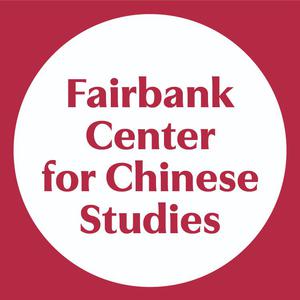 Harvard Fairbank Center for Chinese Studies
Harvard Fairbank Center for Chinese Studies
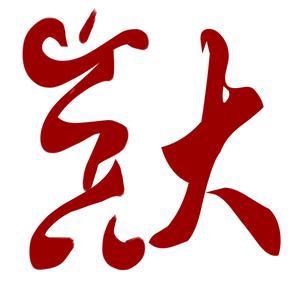 UPenn Center for the Study of Contemporary China
UPenn Center for the Study of Contemporary China
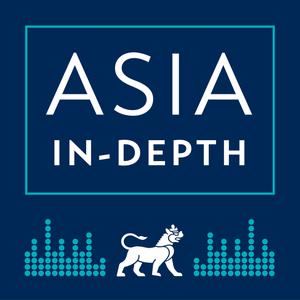 Asia In-Depth
Asia In-Depth
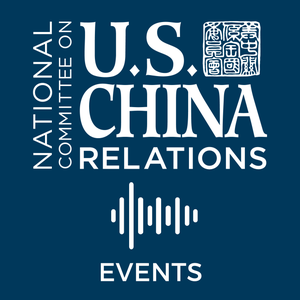 NCUSCR Events
NCUSCR Events
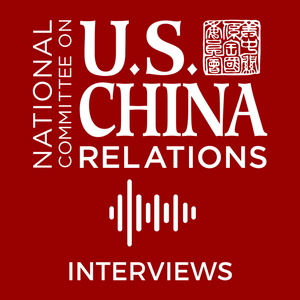 NCUSCR Interviews
NCUSCR Interviews
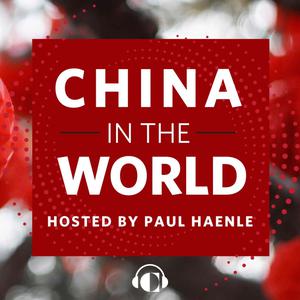 China in the World
China in the World